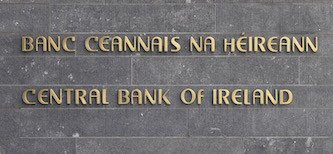The Central Bank of Ireland has reprimanded and fined Bank of Ireland €100.5 million “for a series of significant and long-running failings in respect of 15,910 tracker mortgage customer accounts which were impacted between August 2004 and June 2022.”
This is the largest fine imposed to date by the Central Bank of Ireland.
The central bank said Bank of Ireland admitted in full to 81 separate regulatory breaches.
It said the key findings from the investigation included the facts that Bank of Ireland provided unclear contractual documents to its customers, failed to interpret its unclear contractual documents in customers’ best interests, failed to warn customers about the consequences of decisions relating to their mortgage and implemented an unfair complaints handling practice.
“The Central Bank determined the appropriate fine to be €143,600,000, which was reduced by 30% to €100,520,000 in accordance with the settlement discount scheme provided for in the Central Bank’s ASP,” said Central Bank of Ireland.
“This is the largest fine imposed to date by the Central Bank and is in addition to the more than €186,400,000 Bank of Ireland has already paid to impacted customers identified prior to and as part of the Central Bank’s Tracker Mortgage Examination (TME).
“The investigation found that Bank of Ireland failed in its obligations towards its customers under the European Communities (Unfair Terms in Consumer Contracts) Regulations, 1995, the Code of Practice for Credit Institutions, 2001 and the Consumer Protection Codes 2006 and 2012.
“Bank of Ireland’s failures resulted in the loss of 50 properties, including 25 family homes, which would have been avoided if Bank of Ireland had complied with the most basic and fundamental of its consumer protection obligations.”
The Central Bank’s Director of Enforcement and Anti-Money Laundering, Seána Cunningham, said: “Customers are entitled to expect that they will be treated fairly and that financial institutions will act in their best interests.
“Bank of Ireland failed to meet these most basic expectations for almost 16,000 of its customers over an extended period of time. The failings resulted in significant and, at times, devastating detriment for many of those customers.
“Our investigation exposed a culture in Bank of Ireland which, when faced with a choice, prioritised its own interests with little to no regard for the impacts on its customers.
“There were a series of missed opportunities during which Bank of Ireland could have done the right thing by its tracker mortgage customers.
“Despite these opportunities, Bank of Ireland repeatedly interpreted unclear contractual terms in its own favour and against the customer, which continued the harm and loss caused to customers over many years.
“Furthermore, Bank of Ireland’s initial redress and compensation proposals under the TME failed to meet the Central Bank’s most basic expectations, as a result of which significant Central Bank intervention was again required.
“Bank of Ireland’s approach demonstrated a fundamental lack of care and consideration for the impact that their failings had on their customers, resulted in the delayed payment of redress and compensation to them and prolonged the detriment that they suffered.
“The way in which a business measures its success must include how it treats its customers. If a firm has the right culture, the Central Bank’s role should not – as was required here – extend to prolonged engagement to ensure fair outcomes for consumers.
“We expect firms to promptly make things right when things go wrong. Such a consumer-centric culture should not be viewed as a burden or an impediment. It can, and must, sit equally alongside a firm’s other business objectives.
“This marks the completion of the final in a series of firm-level investigations concerning tracker mortgage related issues, but we continue in our unwavering commitment to hold regulated firms and individuals accountable where there are breaches of regulatory requirements and standards.”
